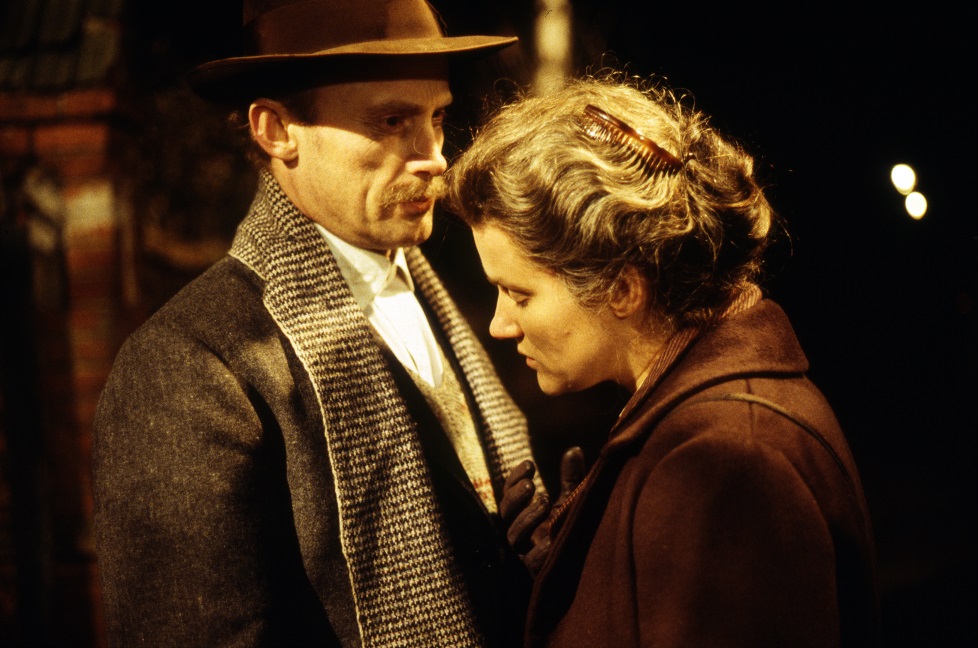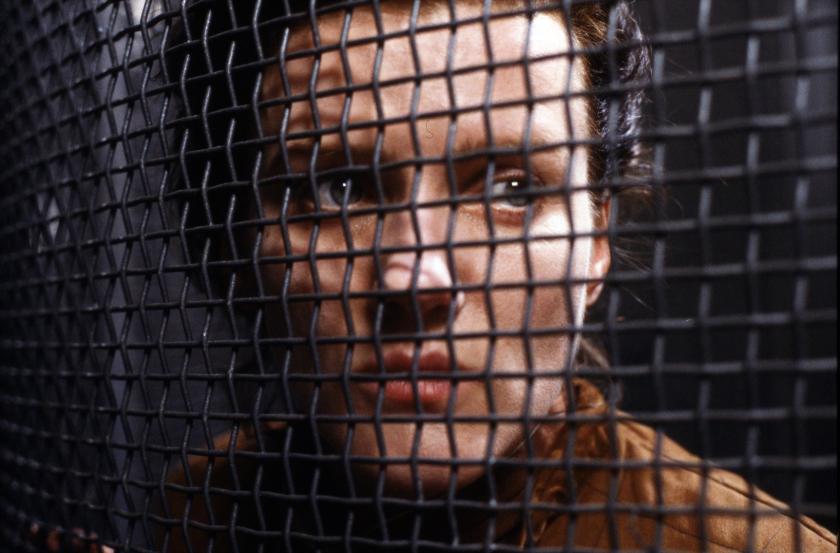Barbara Sukowa won Best Actress at Cannes in 1986 for her title role in Margarethe von Trotta’s Rosa Luxemburg, and the power of her performance looks every bit as engaging and insistent today. A century after Luxemburg’s death (she was assassinated in Berlin on January 15 1919, her body then thrown into a canal), as her significance and influence as a political figure attracts new attention, the film deserves the handsome restoration it receives here in StudioCanal’s “Vintage World Cinema” strand; particularly – remarkable though it may seem, even given von Trotta’s rather neglected status as a director on these shores – as it’s really the first ever English-language home entertainment release in the UK.
Sukowa compellingly catches Luxemburg’s prowess as an orator, that force-of-nature ability to capture the attention of an audience – it's a performance that Sukowa seems to carry on the strength of her jaw alone. Rosa Luxemburg certainly opens as an extroverted film whose set pieces owe more to an older, more traditional style of European filmmaking (the score by Nicolas Economou is particularly stately) than to the New German Cinema from which the director herself emerged.
Von Trotta stresses the loneliness of her heroine
The changing panorama of revolutionary politics in Germany over the two first two decades of the 20th century can sometimes daunt, not least because von Trotta’s script is chronologically elliptical. It dots backwards and forwards, from an opening escape from imprisonment in Warsaw (which actually came later) through grand Berlin New Year celebrations in 1899 at which the fancy-dressed comrades (complete with Luxemburg ias a geisha) saw in the hopeful new century.
But it’s as Luxemburg becomes increasingly isolated – in her angry rejection of the Social Democrats’ collusion with the declaration of war, followed by long confinement in a German gaol – that the film’s greatest strength, its sense of an interior life, emerges. In the 20-minute interview that is the main extra on this release, von Trotta stresses the loneliness of her heroine: never afraid to criticise her Party colleagues, she was unsparing about the ruthless paths taken by the Bolsheviks in Russia. But the sense of personal separation is even more potent, something never assuaged by her passionate involvement (more on her part than his) with the revolutionary, Leo Jogiches (played by Daniel Olbrychski, pictured below with Sukowa), or a later affair with the much-younger son of fellow revolutionary Clara Zetkin, or even close friendships with women with whom, like Zetkin, she was part of a shared political circle. One of the stories that von Trotta heard from a surviving acquaintance during her research speaks volumes – of how when Luxemburg was at home on her own, she would eat across the table from her cat, Mimi (the feline ate from a plate, too: it took close on three months for the cat’s performance to finally come right). The source for this private portrayal was Luxemburg’s letters, though their gradual East Berlin publication was still highlighting public achievement over personal drama: von Trotta was allowed (on the strength of an earlier involvement with the Peace Movement) unusual access to the archives, something denied to some major West German historians before her.
One of the stories that von Trotta heard from a surviving acquaintance during her research speaks volumes – of how when Luxemburg was at home on her own, she would eat across the table from her cat, Mimi (the feline ate from a plate, too: it took close on three months for the cat’s performance to finally come right). The source for this private portrayal was Luxemburg’s letters, though their gradual East Berlin publication was still highlighting public achievement over personal drama: von Trotta was allowed (on the strength of an earlier involvement with the Peace Movement) unusual access to the archives, something denied to some major West German historians before her.
The sense of the director’s engagement with her character becomes absolute, von Trotta creating a fully rounded portrait that goes far beyond the stereotypes of “Red Rosa” as a figure unflinchingly devoted to revolution at any cost; her directorial handling is as confident, as vigorous even as her subject. Rosa Luxemburg is a film as much about that almost abstract concept, moral development, as it is about particular historical events, a process that led her to convictions that put human life above ideology or dogma, as she articulated a powerful insistence on social justice that would especially chime with later generations. .
The other extra is a short interview with Sukowa, in which she remembers her surprise at the casting suggestion from von Trotta (“I thought she’d gone mad!”), given that the director had initially been looking for an actress who more obviously resembled Rosa as the short, dark, vibrant woman she had been in life. There may be something slightly more detached, chillier even, in Sukowa’s performance, but the sense she gives of the “profound intelligence and morality” of her character is unmatched.
Overleaf: watch the German trailer for Rosa Luxemburg















Add comment